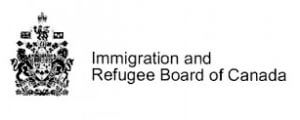Permanent Residence is technically not “permanent” in the sense that a person may lose their status if they don’t comply to some requirements. Section 2 (1) of the Immigration and Refugee Protection Act (Act) defines a permanent resident as “a person who has acquired permanent resident status and has not subsequently lost that status under section 46.”
Section 46 if the Immigration and Refugee Protection Act defines five ways in which a person may lose his or her permanent resident status:
- If they become a Citizen of Canada,
- if they fail to comply with the residency obligation under section 28 of the Act,
- if a removal order made against the person has come into force due to inadmissibility issues,
- if a final determination is made that they are not refugees or entitled to protection (person in need of protection, Pre Removal Risk Assessment); or
- They Voluntarily renounce their status (Permanent Resident Status)
We will briefly review each of these categories.
1. When you become a Citizen of Canada
Once you become a Canadian Citizen you automatically loose your permanent residence Status. As a Citizen not only do you benefit from the same rights that you did as a Permanent Resident but you also obtain additional rights as well.
2. Failure to meet the Residency Obligations

You can loose your permanent resident status if you fail to fulfill your residency obligations. Although, one is not required to remain in Canada indefinitely section 28 of the Immigration and Refugee Protection Act does require that a permanent resident spend 730 days out of 5 years in Canada. Therefore, a permanent resident does have to satisfy an officer when applying to renew their Permanent Resident Card or at a Port of Entry that they meet the residency obligations. To demonstrate compliance with this requirement one can submit documentation such as proof of employment, proof of enrollment at a school, bank statements, pictures and statements from friends and family as well as other documents.
There are some exemptions that allow a permanent resident who failed to remain in Canada for 730 days out of 5 years to get days spent outside of Canada counted as days spent in Canada:
- If you were outside of Canada with a Canadian Citizen who is your spouse or common-law partner.
- If you were employed outside of Canada on full-time basis for a Canadian Company or Government.
- If you were outside of Canada with a Canadian Citizen who is your spouse or common-law partner who is employed full-time working for a Canadian Company or the Government of Canada.
3. Inadmissibility and Removal Orders
 A Permanent Resident can be determined to be inadmissible in Canada on grounds of Security Reasons, human or international rights violations, Serious Criminality, Organized Criminality and Misrepresentation, Failure to Comply with the Act such as meeting the residency obligations (see section 2 above).
A Permanent Resident can be determined to be inadmissible in Canada on grounds of Security Reasons, human or international rights violations, Serious Criminality, Organized Criminality and Misrepresentation, Failure to Comply with the Act such as meeting the residency obligations (see section 2 above).
As a result of being determined inadmissible in Canada one can loose their Permanent Resident Status.
The process usually involves an allegation of inadmissibility to be reviewed by an officer who then decides whether or not to refer the matter to the Immigration Division of the Immigration and Refugee Board where the matter will be decided at a hearing which might or might not have a right of Appeal seeing that some grounds of inadmissibility do not have a right of Appeal such as Serious Criminality where the term of imprisonment is more than 6 months.
4. Final Determination that a Person is not a Refugee or a Person in need of Protection
 If a person’s refugee claim involved Fraud or Misrepresentation they can loose their permanent resident Status. The Minister upon discovering that there has been fraud or Misrepresentation makes an application to vacate to the Refugee Protection Board pursuant to section 109 of the Immigration and Refugee Protection Act. If the application is allowed and the Board vacates the original decision for refugee protection this will result in the person loosing their permanent resident status in Canada.
If a person’s refugee claim involved Fraud or Misrepresentation they can loose their permanent resident Status. The Minister upon discovering that there has been fraud or Misrepresentation makes an application to vacate to the Refugee Protection Board pursuant to section 109 of the Immigration and Refugee Protection Act. If the application is allowed and the Board vacates the original decision for refugee protection this will result in the person loosing their permanent resident status in Canada.
5. Renouncing your Permanent Resident Status
A person may voluntarily renounce their Status as long as they have Status (Citizenship or PR) in another country. For more information and submitting this type of application click here.
We have seen five ways for which a person may loose their status. For more information regarding Permanent Residence status contact the Chaudhary Law Office an Immigration Law Office in Toronto, Canada.
